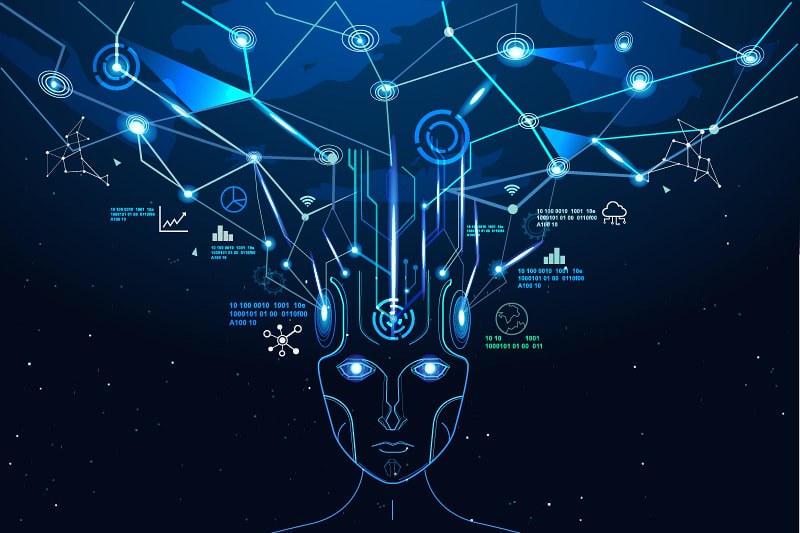Replacing Your Startup Team with AI Agents: A Game-Changer or a Risk?
By Fractz - 18 Feb 2025

AI agents are revolutionizing the way startups operate, automating tasks that were once handled by humans. But can they fully replace a startup team? This article explores the potential, challenges, and broader implications of AI-driven automation on both startups and the workforce at large.
Introduction: The AI Revolution in Startups
The rise of AI agents is transforming how businesses operate, especially in the startup ecosystem. With AI-driven search and user-focused optimization, startups are now exploring the idea of replacing entire teams with AI-powered agents to cut costs, scale operations, and boost efficiency. But is this a revolutionary step forward, or could it backfire?
This article explores: - How AI agents are reshaping startups - The benefits & risks of replacing human teams - Broader implications for the future of work
How AI Agents Are Transforming Startups
AI agents are autonomous software systems capable of executing tasks with little or no human intervention. Thanks to advancements in machine learning (ML), natural language processing (NLP), and generative AI, these agents now perform a wide range of business functions, including:
Customer Support: AI chatbots handle up to 80% of customer queries without human intervention.
Marketing & Sales: AI tools generate content, manage ad campaigns, and analyze customer behavior.
Software Development: AI-powered coding assistants like Devin AI can write and debug code autonomously.
Finance & Accounting: AI automates bookkeeping, fraud detection, and financial forecasting.
Human Resources: AI tools handle resume screening, interview scheduling, and employee onboarding.
Startups like Workday AI and Devin AI are leading the way, enabling leaner operations and setting the stage for a hybrid future.
Featured Case Study: Automating Content Creation with AI Agents
A recent case study showcased how a startup automated its content creation process using AI agents.
1️⃣ Fine-Tuning an AI Model:
- Trained a model on 50+ examples of high-quality content.
- Refined prompts to produce a conversational, brand-specific tone.
2️⃣ Creating a Brand Brief:
- Documented the brand’s tone, core values, and style guidelines to support consistency and improve trust.
3️⃣ Building an Automated Workflow:
- Integrated tools like n8n and FeedHive to set up multiple AI agents for generating content ideas, writing posts, quality review, and automated scheduling and publishing.
Benefits of Replacing a Startup Team with AI Agents
1️⃣ Cost Savings 💰: AI agents eliminate payroll expenses, benefits, and operational costs. Replacing just 50% of a team with AI could result in millions of dollars in annual savings.
2️⃣ Increased Efficiency & Scalability 📈: AI operates 24/7, processes information faster than humans, and scales effortlessly. Startups can manage larger workloads without hiring additional staff.
3️⃣ Enhanced Decision-Making 🔍: AI-driven analytics offer real-time insights, enabling faster, more accurate data-driven decisions.
4️⃣ Fewer Errors & Higher Productivity ⚙️: By reducing human error, AI agents ensure greater accuracy in areas such as finance, marketing, and customer support.
Challenges & Risks of Replacing Human Teams with AI
1️⃣ Loss of Creativity & Innovation 🎨: AI lacks the emotional intelligence, creativity, and complex problem-solving skills essential for startups.
2️⃣ Trust & Ethical Concerns ⚖️: Critical business decisions made by AI systems may carry risks such as bias or flawed forecasts.
3️⃣ Integration & Maintenance Costs 💻: Implementing AI requires robust infrastructure, seamless integration, and ongoing updates, with high initial costs.
4️⃣ Technical Complexity & Learning Curve 📚: Challenges include preparing training data (e.g., in JSONL format), fine-tuning AI models, and integrating tools like n8n, OpenAI, and FeedHive.
5️⃣ Public & Employee Backlash 🗣️: Replacing human jobs with AI can damage a startup’s brand reputation and lead to consumer pushback.
AI and the Future of Work: What’s Next?
Automation vs. Augmentation: AI could automate 60–70% of employee workloads, affecting roles in customer service, accounting, and administration. However, many experts expect AI to augment rather than completely replace human workers.
Job Displacement Data: Research suggests that 80–90% of repetitive tasks are at risk of automation, yet AI could also create new opportunities and industries.
Hybrid Workforce Models: The future likely lies in a hybrid model where AI handles repetitive tasks while humans focus on creativity, innovation, and strategy.
Hybrid Approach: The Best of Both Worlds
Rather than fully replacing human teams, a hybrid AI-human model offers a balanced solution:
- Automate Repetitive Tasks: Allow AI to manage routine, time-consuming work.
- Maintain Human Oversight: Ensure quality control, ethical decision-making, and consistency in brand messaging.
- Enhance Productivity: Leverage AI’s efficiency while preserving human creativity for innovative problem-solving.
Companies such as Tesla, Google, and Amazon successfully integrate AI automation alongside human talent, demonstrating that AI is best used as a complement rather than a complete replacement.
Conclusion: Should Startups Replace Teams with AI?
AI agents offer tremendous potential for cost-cutting, scalability, and automation. However, fully replacing human teams carries significant risks—from reduced creativity and technical complexities to ethical concerns and potential consumer backlash.
The most effective approach is a hybrid AI-human model, which enables startups to harness AI’s efficiency while preserving human-driven innovation.
Want to Implement AI in Your Startup?
Our AI experts specialize in startup automation. Contact us today to explore AI-powered solutions tailored to your business needs.
Fractz
18 Feb 2025
Share:
